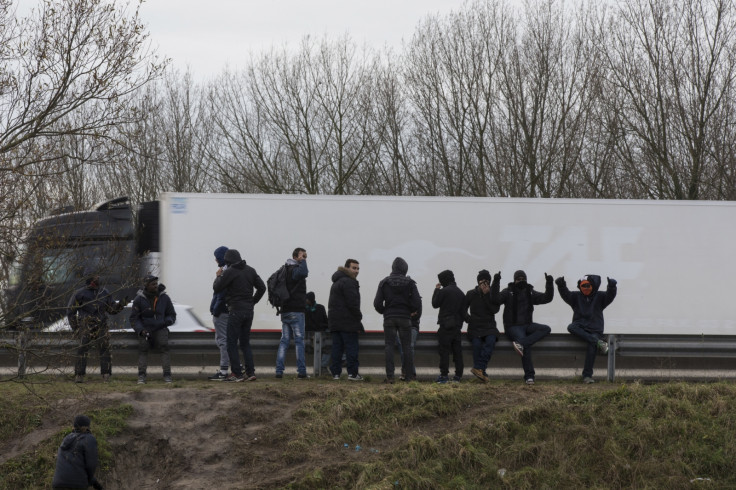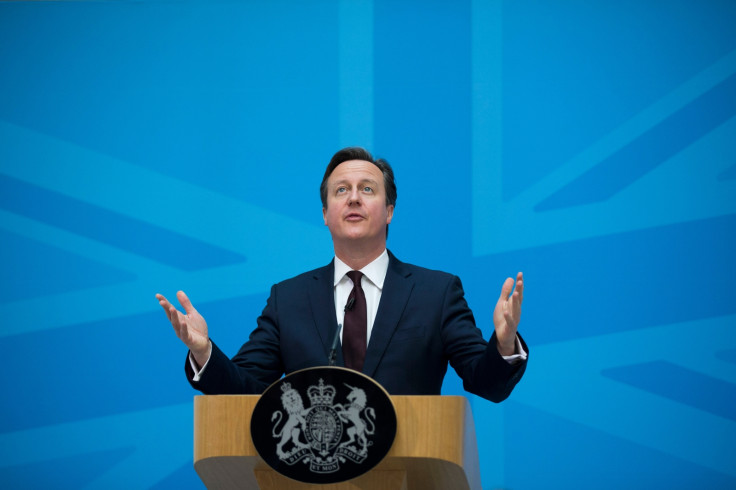David Cameron's immigrant crackdown will drive thousands into modern slavery

It is astonishing that a government that only last year passed an Immigration Bill not yet even fully implemented should be in such a rush to pass a new one.
That a new immigration bill will be announced in the Queen's Speech next week was the main message delivered by the Prime Minister to an audience of Home Office staff this morning. Much of what has been announced as the content of the bill is nothing more than a rehash of measures already in force.
The speech was timed to correspond with the ONS migration statistics released today, which showed that net migration exceeded 300,000 in 2014. The prime minister is far from reaching his 'no if's, no but's' target to reduce net migration from "hundreds of thousands to tens of thousands". Instead of wondering why, he is doubling down on a failed approach, and doing more than ever to bring "toughness" back into the UK immigration system.

In doing this the government is revealing the poverty of its understanding of what is driving migration to the UK today. They seem intent on creating an environment that will expose more people to the dangers of a miserable life on the margins of British society, but nothing in any of these pledges encourages the view that migration levels will come down as a consequence.
Mr Cameron describes his proposal to make working without permission from the Home Office a crime as a 'radical' step. There is a reason for that. It is utterly counterproductive.
Criminalising irregular migrants, who are inevitably targets of horrific exploitation by unscrupulous traffickers, employers, and landlords - often one and the same person - makes them complicit in the crime committed against them. It is 'radical' only because most people still believe that we should punish the perpetrators, not the victims of a crime.
A government wanting to protect UK workers from having their wages undercut must ensure that any migrant worker in a situation of exploitation feels able to come forward and report on their employer.
Any complaint, any whistleblowing, will result in the migrant not just being deported, as already happens, but being fined and having what little money or goods they may possess taken from them. The police will be required to rifle through the pockets and meager possessions of some of the poorest among us. There is no chance that they will come forward to report the people who really profit from their exploitation. The plans to toughen response to vulnerable workers who have fallen in breach of immigration regulations, will have the effect of locking more people into systems of modern slavery without hope of protection from the law.
A government wanting to protect UK workers from having their wages undercut must ensure that any migrant worker in a situation of exploitation feels able to come forward and report on their employer. A government that wishes to stop people in the UK living in unsafe housing, potentially endangering their neighbours, needs to make sure that everyone can step forward and report their dodgy landlord.
A government that wants a healthy population and to reduce strain on the NHS needs to ensure that migrants with health problems come forward early, rather than placing strain on emergency services later. A fear of public services, or of any contact with the police, is a desperately dangerous thing to instil in any part of the public.
As the ONS figures show today, the government has no idea of how to control legal migration. Its exemplary punishment of a few extremely vulnerable migrants is a transparent attempt to avoid that conversation. Taking scraps of cash from people working long hours for almost nothing in essential jobs that keep this country running is nothing more than a particularly cruel demonstration of its ineptitude.
Taking scraps of cash from people working long hours for almost nothing in essential jobs that keep this country running is nothing more than a particularly cruel demonstration of its ineptitude.
The government claims that the UK is one of the fastest-growing post-recession economies. That is what has been driving migration to the UK, and in turn migration is what is supporting the boost to the economy. That is inescapable.
If the government wants to tackle structural problems around low wages and public services, they should start by looking at employers who exploit their workforce, at zero hours contracts, at building housing and in funding the public services that a growing economy needs.
The Government should bury the net migration target and admit that what the latest migration figures really show is Britain's growing economy. They reflect that Britain is more than ever an outward-facing, globalised country with a diverse and hardworking population from overseas.
Chai Patel is Policy & Campaign Officer of Migrants' Rights Network. You can find out more about them by visiting the website or following them on Twitter @migrants_rights.
© Copyright IBTimes 2024. All rights reserved.





















